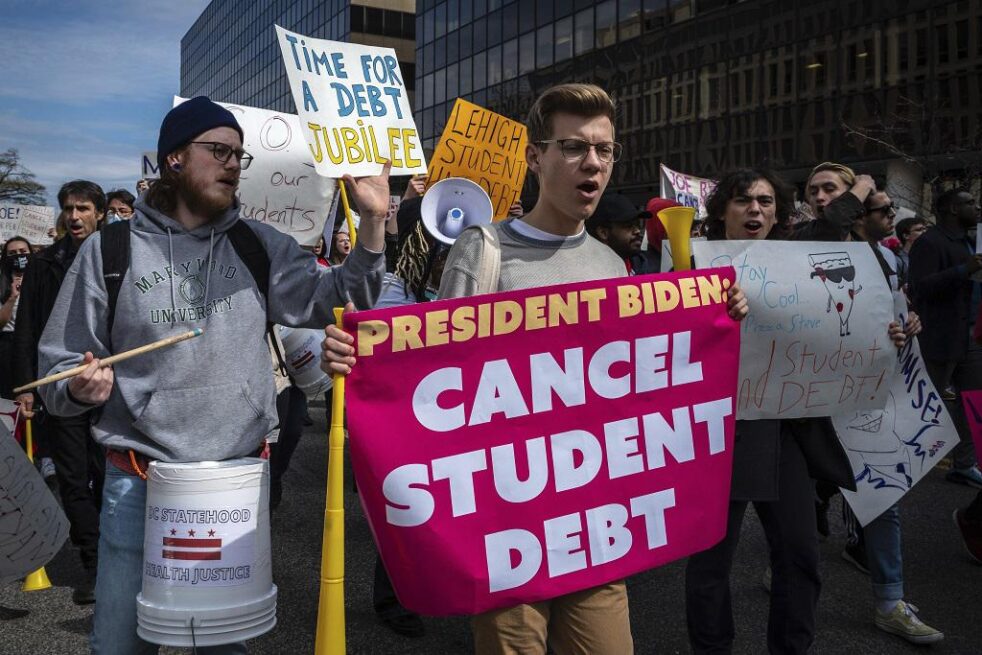On Sept. 3, seven Republican states, including Georgia, preemptively filed a suit against the third student loan relief proposal by the Biden-Harris government. The previous two attempts were quashed by the U.S. Supreme Court in June 2023 and a federal appeals court in August this year. On Sept. 5, however, Missouri’s Attorney General Andrew Bailey obtained a restraining order blocking the plan. Had it been successful, the plan would have provided debt relief to millions of Americans who had taken out loans for college.
“The Biden-Harris Administration is dedicated to saddling working Americans with Ivy League debt, even if they have to break the law to do it. Our latest lawsuit challenges their third and weakest attempt to mass-cancel student loans in the dark of night without letting Congress – or the public – know about it. That’s illegal,” said Bailey.
Peter Brecke, a recently retired Associate Professor at the Sam Nunn School of International Affairs, explained multiple reasons for Republican opposition to the proposal.
“A lot of Donald Trump’s supporters are not college educated or have limited college education. For them, it’s like, ‘Why should [people who took out loans] get a break?’ They feel there is some unfairness with student loan cancellation.” Brecke said.
Brecke felt that these were credible concerns raised by people around him, but there were possible counterarguments.
“One response to it is — okay, but these students are making an investment into their own futures and the future of America and even the world. The second part of the response is that a lot of these students took predatory loans from for-profit universities. To me, the combination of these two would be a good response,” Brecke said.
The Supreme Court, however, deemed the Biden administration’s policy unconstitutional, stating that it needs approval from Congress.
Of the seven states that filed the suit, four have populations of less than 10 million. In fact, North Dakota has the fourth-lowest population in the United States, at under 800,000 as of 2020. Brecke felt that these states’ low populations could be correlated with their disconnection from the student debt crisis.
“Most of the Republican support comes from low-population states besides Texas and Florida. The majority of students who are impacted come from blue states. In red states, there is a higher percentage of people who did not go to college or whose parents and grandparents did not go to college. That’s where the resistance comes from,” Brecke said.
According to the Georgia Budget and Policy Institute, before the injunction to block the Biden-Harris’ Saving on a Valuable Education (SAVE) Plan benefits earlier this year, over 286,000 borrowers in Georgia enrolled in the program. Of these borrowers, 16,340 had been identified for debt cancellation. Georgia’s Attorney General teamed up with six other states to file the lawsuit to block the SAVE Plan.
Brecke said he did not expect the Democrats to respond on the issue of student loan forgiveness because it was a lower priority issue. However, he felt they could seize the opportunity to capture a young demographic with the promise of debt relief.
“This is where the Democrats can nudge young college people to vote, by convincing them that voting the Democratic Party into power can help them see more debt relief legislation,” Brecke said.
When asked about the impact of the student debt crisis on Tech students, Brecke felt that the Zell Miller and HOPE scholarships available to Georgia students played a significant role in alleviating financial hardships.
“Tech students have other issues — such as the fact that Tech doesn’t have sufficient dorm space, which is pushing students into Midtown or on the West side. The costs of these apartments have risen in this time. Even if Tech builds more dorm space, it would not solve the issues,” Brecke said. ‘I feel the main student debt problem is with private colleges that are less fortunate and need tuition money,”
Brecke felt that debt forgiveness was more feasible than before because adults’ understanding of it had grown.
“Millennials have found buying a car or a new home stymied because of student debt. Awareness has grown among older people about the problem and there is a growing sentiment that debt cancellation is a good thing.” Brecke said.
While Brecke felt opposition from non-college educated people was unlikely to change, he felt support from college-educated voters could increase if debt relief plans were made more palatable.
“There could be more support if this was means-tested. For example, if you’re coming from a family that makes $200,000 a year and then take loans, you deserve it less than someone who was exploited by a private university. There should be good reductions for some people and lower reductions for others,” Brecke said.
Brecke also suggested that for-profit universities could be forced to prove that a significant number of their students were getting good employment prospects to get a portion of the money from debt cancellation. He felt these additions could increase public support, even if the proposals continued to face implementation roadblocks due to Republican legal pressure and the shaky constitutionality of implementing the plan from the executive branch.
